Why Knowledge Management is the next big role in law firms
KM is transforming how legal work gets done—and who’s doing it


If you haven’t worked with a director of knowledge management before, you’re not alone. But that may soon change. Knowledge Management (KM) is a growing field within law firms, focused on capturing, organizing and delivering the firm’s collective expertise so lawyers can work smarter and faster.
As firms grapple with information overload and explore new uses for AI, KM professionals are becoming essential to bridging the gap between technology, legal practice and client service.
This week, we spoke with attorney Renae Flowers, director of knowledge management for the health & life sciences practice group at McDermott Will & Schulte, about how she turns complex healthcare information into practical tools and resources that help attorneys work more efficiently.
—Interview by Emily Kelchen, edited by Bianca Prieto
For lawyers who haven’t worked with a Knowledge Management team, how do you describe what KM is and why it matters?
In my role, I lead the KM strategy for the practice group by transforming complex healthcare information into practical, user-friendly resources—leveraging both technology and AI tools.
Day-to-day, that means piloting AI programs, building digital products, tracking healthcare legislation, responding to attorney requests and much more. Every project is about helping our attorneys access the right knowledge at the right time so they can better serve clients.
Can you share an example of a project you have worked on?
Recently, my team transformed a couple of static, Word-based 50-state surveys on "Nurse Practitioner Supervision and Scope of Practice and Physician Assistant Collaborative Practice and Supervision" into dynamic digital tools.
Now our team and our clients operating in these highly regulated industries can access precise, jurisdiction-specific guidance in real time, resulting in a meaningful reduction in manual research time for both lawyers and clients. Client feedback has been so overwhelmingly positive, these tools were named finalists for The American Lawyer Industry Awards: Best Use of Technology.
This is just one way Knowledge Management connects people, information, and technology to streamline delivery and enhance client service in tangible, measurable ways.
How did you first get into Knowledge Management? Was it a natural evolution from legal practice, or a deliberate career shift?
I wasn’t someone who always knew I wanted to be a lawyer, so I made a point to keep learning new skills and paying attention to what energized me. At the time, I wasn’t familiar with Knowledge Management, but I noticed how much of my work and interests touched on similar principles: organization, accessibility and problem-solving. I realized I genuinely enjoyed being a resource for others. Once I recognized that excitement as a signal rather than a coincidence, I saw my current role as the perfect opportunity to combine law, structure, and technology in a hands-on way.
How did your legal background prepare you, or not prepare you, for this job?
It prepared me in the ways I expected—writing clearly, analyzing complex problems, being solutions-oriented—and in some ways I didn’t. It didn’t prepare me for how collaborative and fluid non-legal work can be. As lawyers, we’re trained to minimize risk and favor certainty, but in other environments, progress often depends on iteration, feedback and flexibility. Learning to loosen my grip on being “right” and instead focus on forward movement has been an important adjustment.
What’s most exciting (or challenging) about using AI in Knowledge Management right now?
What excites me is AI’s potential to streamline work, create efficiencies and unlock new ways of thinking. My team has spent a lot of time piloting AI tools, and we’ve seen how they can help fill information gaps and free up time for higher-value work.
What keeps me up at night is ensuring people are trained and thoughtful in how they use AI. These tools are powerful, but they don’t replace human judgment. Effective use requires testing, prompt design and thoughtful governance. AI should be seen as complementary—not the end-all, be-all—and that mindset shift takes ongoing effort.
Where do you see all this heading in the next five years?
I see Knowledge Management exploding across the legal industry. While many firms now have KM teams, it’s still not as embedded or mature as in other industries. That’s changing quickly. The value that KM teams provide goes far beyond information organization—it’s about creating knowledge ecosystems that connect people, processes and technology. As AI evolves, KM will become a cornerstone of how firms manage expertise, deliver client value and drive continuous learning. I’m excited to be part of shaping that transformation.

You're all caught up!
Thanks for reading today's edition! You can reach the newsletter team at raisethebar@mynewsletter.co. We enjoy hearing from you.
Interested in advertising? Email us at newslettersales@mvfglobal.com
Was this email forwarded to you? Sign up here to get this newsletter every week.
Raise the Bar is written and curated by Emily Kelchen and edited by Bianca Prieto.




Comments ()